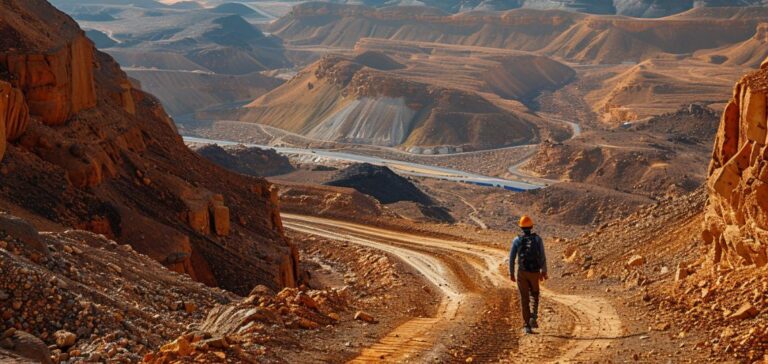Jordan is continuing its efforts to structure its uranium industry with a feasibility study designed to assess the potential for commercial exploitation and attract investment. This initiative is part of a strategy to process the country’s resources locally rather than exporting raw ore.
A deposit with promising prospects
Jordan’s uranium resources are estimated at 62,000 tonnes, primarily located in carbonaceous and phosphatic rock formations in the centre of the country. The shallow depth of these deposits reduces extraction costs, increasing the project’s economic viability. Additional reserves identified in various regions further expand this potential, although their commercial exploitation has yet to be assessed.
Since 2021, a pilot plant in Swaqa has been testing heap leaching, a technology that allows uranium extraction from ore at a lower cost. This experimental phase aims to provide crucial data for a potential industrial-scale operation.
A financing-oriented approach
The rise in uranium prices has generated increased interest from investors. Jordan is seeking to secure funding through local and international loans, as well as partnerships with mining sector companies. The ongoing feasibility study is key to determining the project’s profitability and structuring its financing.
Water constraints present a significant challenge. The country’s annual water consumption exceeds available supply, necessitating tailored solutions for mining operations. The use of treated brackish groundwater, unsuitable for human consumption but viable for industrial purposes, along with recycling technologies, is among the options being considered.
Regulatory framework and skills development
International standards regulate the storage of heap leaching residues to minimise environmental risks. Strict monitoring is planned to prevent contamination of water resources and soil.
Jordan is also focusing on developing its local workforce. Training programmes in mining operations and nuclear resource management are being developed in collaboration with specialised institutions to reduce reliance on foreign expertise.
The country aims to establish a structured mining industry and position itself in the uranium market by prioritising local extraction and a regulatory framework aligned with sector requirements.






















